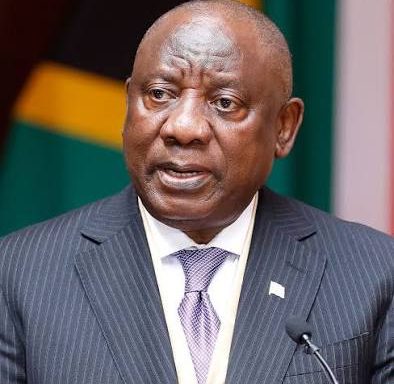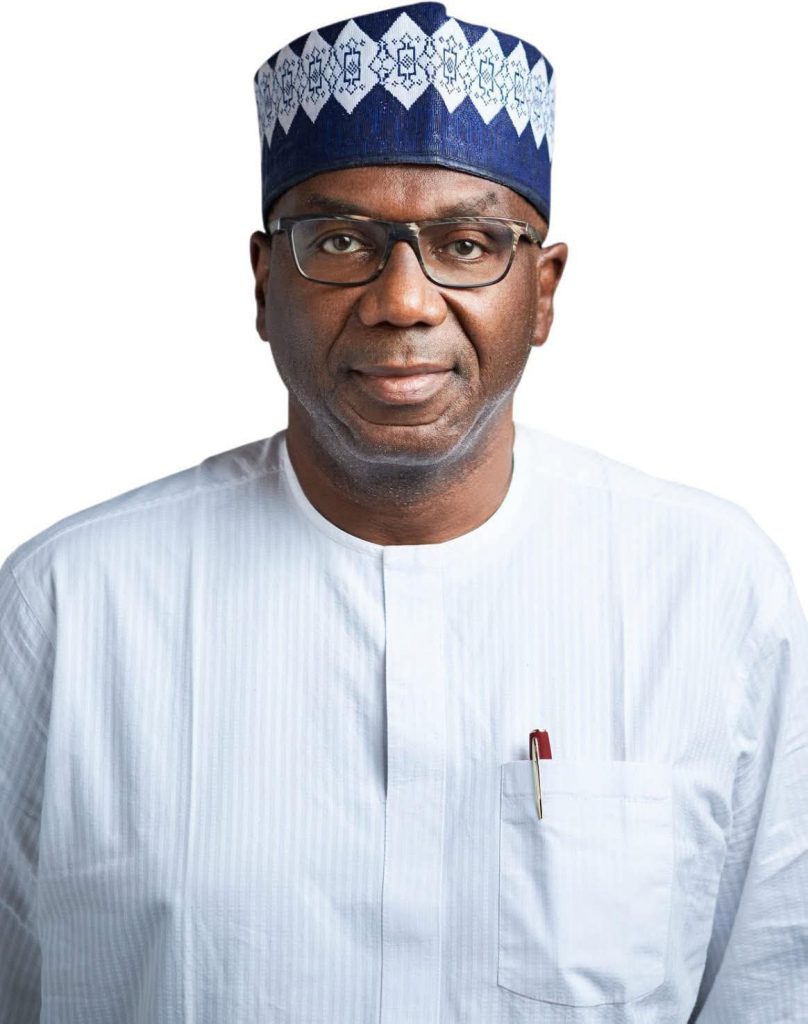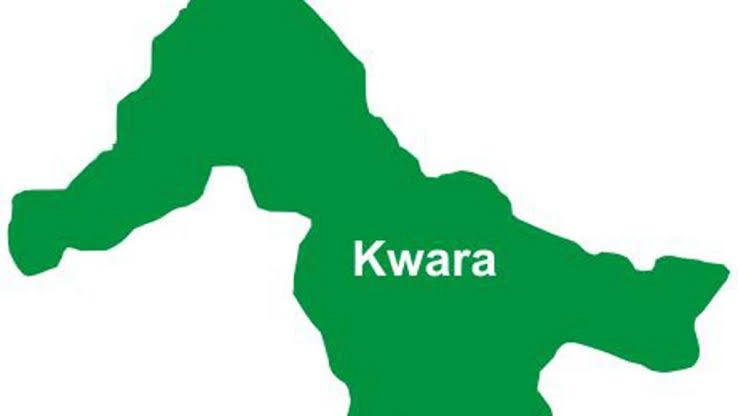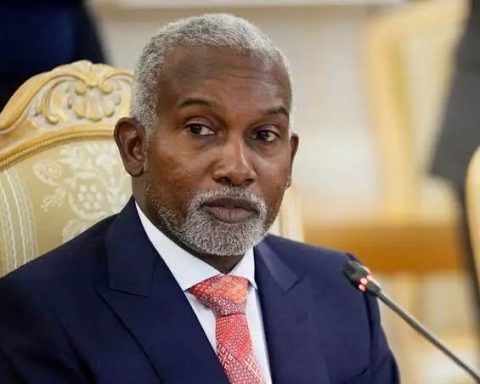In a landmark decision hailed as a major victory for gender equality and family rights, South Africa’s Constitutional Court has ruled that all parents of newborns are entitled to equal parental leave. The court unanimously found key provisions of the Basic Conditions of Employment Act and the Unemployment Insurance Fund Act unconstitutional, describing them as discriminatory against non-birth parents, including fathers, adoptive parents, and commissioning parents using surrogates.
Under current law, mothers are granted four months’ maternity leave, while fathers receive just 10 days.
The judgment allows parents to share the total leave allocation however they choose. If only one parent is employed, that parent may take the full leave.
Delivering the ruling on Friday, Justice Zukisa Tshiqi said the existing law unfairly burdened mothers while excluding fathers: “The protection of birth mothers to the exclusion of other parents has the unfortunate consequence of perpetuating the assumption that women are, and should
be, the primary caregivers of children. The father is marginalised and deprived of the opportunity to involve himself as a parent in the upbringing of the baby during the early stages of life.”
Justice Tshiqi emphasised that the ruling is not only about gender equality but also about protecting the dignity of families:
“The unequal treatment not only marginalises parents but also deprives children of the opportunity to be with their caregivers during a crucial period
of nurturing and adjustment to their new environment.”
The case was initiated by a married couple, together with the Commission for Gender Equality and other advocates, who challenged sections of the law that unfairly limited leave for fathers and non-birth parents. The petitioners argued that the legislation reinforced outdated societal assumptions that women should be the primary caregivers.
Commenting on the ruling, Tsietsi Shuping of the Commission for Gender Equality said “The essence of the case is that it highlights the need to provide equal parental leave benefits, recognising that nurturing a child is a shared responsibility.The current law did not reflect evolving societal norms around parenting.”
READ ALSO:Court Ruling: South African Husbands Can Now Take Wives’ Surnames
Labour lawyer Patrick Deale told state media that the judgment was “a positive and expected outcome for parental rights in the country,” while Sthembiso Phakathi, founder of the Single Dads Network, described it as: “A ground-breaking step for equality, family wellbeing, and the future of fatherhood in South Africa.”
The court has suspended the invalidity of the discriminatory provisions for three years, giving Parliament time to amend the laws in line with the judgment.
In the meantime, parents are entitled to decide how they want to share the four months and 10 days of leave. The ruling is expected to have wide-ranging implications for employers, who will need to review leave policies to comply with the new legal framework. Experts say it also represents a shift in societal expectations, acknowledging that caregiving is a shared responsibility and promoting greater involvement
of fathers in the early stages of their children’s lives.

John Adoyi, PBA Journalism Mentee
- John Adoyi, PBA Journalism Mentee
- John Adoyi, PBA Journalism Mentee
- John Adoyi, PBA Journalism Mentee
- John Adoyi, PBA Journalism Mentee
- John Adoyi, PBA Journalism Mentee
- John Adoyi, PBA Journalism Mentee
- John Adoyi, PBA Journalism Mentee
- John Adoyi, PBA Journalism Mentee
- John Adoyi, PBA Journalism Mentee
- John Adoyi, PBA Journalism Mentee
- John Adoyi, PBA Journalism Mentee
- John Adoyi, PBA Journalism Mentee
- John Adoyi, PBA Journalism Mentee
- John Adoyi, PBA Journalism Mentee
- John Adoyi, PBA Journalism Mentee
- John Adoyi, PBA Journalism Mentee
- John Adoyi, PBA Journalism Mentee
- John Adoyi, PBA Journalism Mentee
- John Adoyi, PBA Journalism Mentee
- John Adoyi, PBA Journalism Mentee
- John Adoyi, PBA Journalism Mentee
- John Adoyi, PBA Journalism Mentee
- John Adoyi, PBA Journalism Mentee
- John Adoyi, PBA Journalism Mentee
- John Adoyi, PBA Journalism Mentee
- John Adoyi, PBA Journalism Mentee
- John Adoyi, PBA Journalism Mentee
- John Adoyi, PBA Journalism Mentee
- John Adoyi, PBA Journalism Mentee
- John Adoyi, PBA Journalism Mentee
- John Adoyi, PBA Journalism Mentee
- John Adoyi, PBA Journalism Mentee
- John Adoyi, PBA Journalism Mentee
- John Adoyi, PBA Journalism Mentee
- John Adoyi, PBA Journalism Mentee
- John Adoyi, PBA Journalism Mentee
- John Adoyi, PBA Journalism Mentee
- John Adoyi, PBA Journalism Mentee
- John Adoyi, PBA Journalism Mentee
- John Adoyi, PBA Journalism Mentee
- John Adoyi, PBA Journalism Mentee
- John Adoyi, PBA Journalism Mentee
- John Adoyi, PBA Journalism Mentee
- John Adoyi, PBA Journalism Mentee
- John Adoyi, PBA Journalism Mentee
- John Adoyi, PBA Journalism Mentee
- John Adoyi, PBA Journalism Mentee
- John Adoyi, PBA Journalism Mentee
- John Adoyi, PBA Journalism Mentee
- John Adoyi, PBA Journalism Mentee
- John Adoyi, PBA Journalism Mentee
- John Adoyi, PBA Journalism Mentee
- John Adoyi, PBA Journalism Mentee
- John Adoyi, PBA Journalism Mentee
- John Adoyi, PBA Journalism Mentee
- John Adoyi, PBA Journalism Mentee
- John Adoyi, PBA Journalism Mentee
- John Adoyi, PBA Journalism Mentee
- John Adoyi, PBA Journalism Mentee
- John Adoyi, PBA Journalism Mentee
- John Adoyi, PBA Journalism Mentee
- John Adoyi, PBA Journalism Mentee
- John Adoyi, PBA Journalism Mentee
- John Adoyi, PBA Journalism Mentee
- John Adoyi, PBA Journalism Mentee
- John Adoyi, PBA Journalism Mentee
- John Adoyi, PBA Journalism Mentee
- John Adoyi, PBA Journalism Mentee
- John Adoyi, PBA Journalism Mentee
- John Adoyi, PBA Journalism Mentee
- John Adoyi, PBA Journalism Mentee
- John Adoyi, PBA Journalism Mentee
- John Adoyi, PBA Journalism Mentee
- John Adoyi, PBA Journalism Mentee
- John Adoyi, PBA Journalism Mentee
- John Adoyi, PBA Journalism Mentee
- John Adoyi, PBA Journalism Mentee
- John Adoyi, PBA Journalism Mentee
- John Adoyi, PBA Journalism Mentee
- John Adoyi, PBA Journalism Mentee
- John Adoyi, PBA Journalism Mentee
- John Adoyi, PBA Journalism Mentee
- John Adoyi, PBA Journalism Mentee
- John Adoyi, PBA Journalism Mentee
- John Adoyi, PBA Journalism Mentee
- John Adoyi, PBA Journalism Mentee
- John Adoyi, PBA Journalism Mentee
- John Adoyi, PBA Journalism Mentee
- John Adoyi, PBA Journalism Mentee
- John Adoyi, PBA Journalism Mentee
- John Adoyi, PBA Journalism Mentee
- John Adoyi, PBA Journalism Mentee
- John Adoyi, PBA Journalism Mentee
- John Adoyi, PBA Journalism Mentee
- John Adoyi, PBA Journalism Mentee
- John Adoyi, PBA Journalism Mentee
- John Adoyi, PBA Journalism Mentee
- John Adoyi, PBA Journalism Mentee
- John Adoyi, PBA Journalism Mentee
- John Adoyi, PBA Journalism Mentee
- John Adoyi, PBA Journalism Mentee
- John Adoyi, PBA Journalism Mentee
- John Adoyi, PBA Journalism Mentee
- John Adoyi, PBA Journalism Mentee
- John Adoyi, PBA Journalism Mentee
- John Adoyi, PBA Journalism Mentee
- John Adoyi, PBA Journalism Mentee
- John Adoyi, PBA Journalism Mentee
- John Adoyi, PBA Journalism Mentee
- John Adoyi, PBA Journalism Mentee
- John Adoyi, PBA Journalism Mentee
- John Adoyi, PBA Journalism Mentee
- John Adoyi, PBA Journalism Mentee
- John Adoyi, PBA Journalism Mentee
- John Adoyi, PBA Journalism Mentee
- John Adoyi, PBA Journalism Mentee
- John Adoyi, PBA Journalism Mentee
- John Adoyi, PBA Journalism Mentee
- John Adoyi, PBA Journalism Mentee
- John Adoyi, PBA Journalism Mentee
- John Adoyi, PBA Journalism Mentee
- John Adoyi, PBA Journalism Mentee
- John Adoyi, PBA Journalism Mentee
- John Adoyi, PBA Journalism Mentee
- John Adoyi, PBA Journalism Mentee
- John Adoyi, PBA Journalism Mentee
- John Adoyi, PBA Journalism Mentee
- John Adoyi, PBA Journalism Mentee
- John Adoyi, PBA Journalism Mentee
- John Adoyi, PBA Journalism Mentee
- John Adoyi, PBA Journalism Mentee
- John Adoyi, PBA Journalism Mentee
- John Adoyi, PBA Journalism Mentee
- John Adoyi, PBA Journalism Mentee
- John Adoyi, PBA Journalism Mentee
- John Adoyi, PBA Journalism Mentee
- John Adoyi, PBA Journalism Mentee
- John Adoyi, PBA Journalism Mentee
- John Adoyi, PBA Journalism Mentee
- John Adoyi, PBA Journalism Mentee
- John Adoyi, PBA Journalism Mentee
- John Adoyi, PBA Journalism Mentee
- John Adoyi, PBA Journalism Mentee
- John Adoyi, PBA Journalism Mentee
- John Adoyi, PBA Journalism Mentee
- John Adoyi, PBA Journalism Mentee
- John Adoyi, PBA Journalism Mentee
- John Adoyi, PBA Journalism Mentee
- John Adoyi, PBA Journalism Mentee
- John Adoyi, PBA Journalism Mentee
- John Adoyi, PBA Journalism Mentee
- John Adoyi, PBA Journalism Mentee
- John Adoyi, PBA Journalism Mentee
- John Adoyi, PBA Journalism Mentee
- John Adoyi, PBA Journalism Mentee
- John Adoyi, PBA Journalism Mentee
- John Adoyi, PBA Journalism Mentee
- John Adoyi, PBA Journalism Mentee
- John Adoyi, PBA Journalism Mentee
- John Adoyi, PBA Journalism Mentee
- John Adoyi, PBA Journalism Mentee
- John Adoyi, PBA Journalism Mentee
- John Adoyi, PBA Journalism Mentee
- John Adoyi, PBA Journalism Mentee
- John Adoyi, PBA Journalism Mentee
- John Adoyi, PBA Journalism Mentee
- John Adoyi, PBA Journalism Mentee
- John Adoyi, PBA Journalism Mentee
- John Adoyi, PBA Journalism Mentee
- John Adoyi, PBA Journalism Mentee
- John Adoyi, PBA Journalism Mentee
- John Adoyi, PBA Journalism Mentee
- John Adoyi, PBA Journalism Mentee
- John Adoyi, PBA Journalism Mentee
- John Adoyi, PBA Journalism Mentee
- John Adoyi, PBA Journalism Mentee
- John Adoyi, PBA Journalism Mentee
- John Adoyi, PBA Journalism Mentee
- John Adoyi, PBA Journalism Mentee
- John Adoyi, PBA Journalism Mentee
- John Adoyi, PBA Journalism Mentee
- John Adoyi, PBA Journalism Mentee
- John Adoyi, PBA Journalism Mentee
- John Adoyi, PBA Journalism Mentee
- John Adoyi, PBA Journalism Mentee
- John Adoyi, PBA Journalism Mentee
- John Adoyi, PBA Journalism Mentee
- John Adoyi, PBA Journalism Mentee
- John Adoyi, PBA Journalism Mentee
- John Adoyi, PBA Journalism Mentee
- John Adoyi, PBA Journalism Mentee
- John Adoyi, PBA Journalism Mentee
- John Adoyi, PBA Journalism Mentee
- John Adoyi, PBA Journalism Mentee
- John Adoyi, PBA Journalism Mentee
- John Adoyi, PBA Journalism Mentee
- John Adoyi, PBA Journalism Mentee
- John Adoyi, PBA Journalism Mentee
- John Adoyi, PBA Journalism Mentee
- John Adoyi, PBA Journalism Mentee
- John Adoyi, PBA Journalism Mentee
- John Adoyi, PBA Journalism Mentee
- John Adoyi, PBA Journalism Mentee
- John Adoyi, PBA Journalism Mentee
- John Adoyi, PBA Journalism Mentee
- John Adoyi, PBA Journalism Mentee
- John Adoyi, PBA Journalism Mentee
- John Adoyi, PBA Journalism Mentee
- John Adoyi, PBA Journalism Mentee
- John Adoyi, PBA Journalism Mentee
- John Adoyi, PBA Journalism Mentee
- John Adoyi, PBA Journalism Mentee
- John Adoyi, PBA Journalism Mentee
- John Adoyi, PBA Journalism Mentee
- John Adoyi, PBA Journalism Mentee
- John Adoyi, PBA Journalism Mentee
- John Adoyi, PBA Journalism Mentee
- John Adoyi, PBA Journalism Mentee
- John Adoyi, PBA Journalism Mentee
- John Adoyi, PBA Journalism Mentee
- John Adoyi, PBA Journalism Mentee
- John Adoyi, PBA Journalism Mentee
- John Adoyi, PBA Journalism Mentee
- John Adoyi, PBA Journalism Mentee
- John Adoyi, PBA Journalism Mentee
- John Adoyi, PBA Journalism Mentee
- John Adoyi, PBA Journalism Mentee
- John Adoyi, PBA Journalism Mentee
- John Adoyi, PBA Journalism Mentee
- John Adoyi, PBA Journalism Mentee
- John Adoyi, PBA Journalism Mentee
- John Adoyi, PBA Journalism Mentee
- John Adoyi, PBA Journalism Mentee
- John Adoyi, PBA Journalism Mentee
- John Adoyi, PBA Journalism Mentee
- John Adoyi, PBA Journalism Mentee
- John Adoyi, PBA Journalism Mentee
- John Adoyi, PBA Journalism Mentee
- John Adoyi, PBA Journalism Mentee
- John Adoyi, PBA Journalism Mentee
- John Adoyi, PBA Journalism Mentee
- John Adoyi, PBA Journalism Mentee
- John Adoyi, PBA Journalism Mentee
- John Adoyi, PBA Journalism Mentee
- John Adoyi, PBA Journalism Mentee
- John Adoyi, PBA Journalism Mentee
- John Adoyi, PBA Journalism Mentee
- John Adoyi, PBA Journalism Mentee
- John Adoyi, PBA Journalism Mentee
- John Adoyi, PBA Journalism Mentee
- John Adoyi, PBA Journalism Mentee
- John Adoyi, PBA Journalism Mentee
- John Adoyi, PBA Journalism Mentee
- John Adoyi, PBA Journalism Mentee
- John Adoyi, PBA Journalism Mentee
- John Adoyi, PBA Journalism Mentee
- John Adoyi, PBA Journalism Mentee
- John Adoyi, PBA Journalism Mentee
- John Adoyi, PBA Journalism Mentee
- John Adoyi, PBA Journalism Mentee
- John Adoyi, PBA Journalism Mentee
- John Adoyi, PBA Journalism Mentee
- John Adoyi, PBA Journalism Mentee
- John Adoyi, PBA Journalism Mentee
- John Adoyi, PBA Journalism Mentee

















